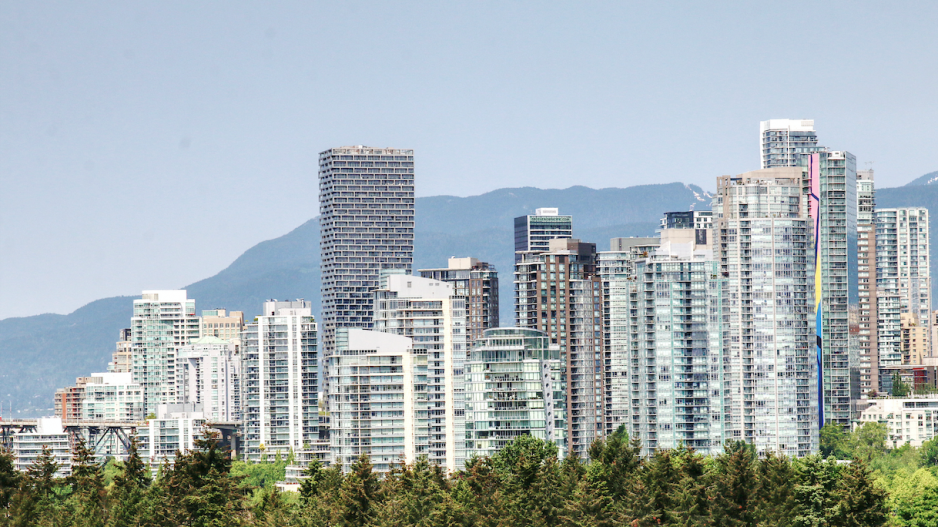As water streamed from the 4th floor to the lobby, my condo building’s long-serving strata council president redefined gravity when she declared that water from a washing machine on the ground floor ascended four storeys to cause the leak.
Such absurd logic ran the building for 10 years.
Supported by council cronies, she placed a garbage bin to capture water and punted mitigation responsibility to the appliance’s owner. Meanwhile, damage visibly spread, residents cried for common sense and action, and sa���ʴ�ý Post suspended service due to dangerous conditions in the lobby.
But the president’s edict stood.
Water leaked for eight days, and the council ignored it.
The leak originated from a hallway pipe on the 4th floor, and it was entirely the strata council’s responsibility to act. Along with several areas that sustained damage, one innocent unit owner faced an $11,000 repair bill, preventable if the council had fulfilled its legal obligations.
So goes strata living, something more of us do these days. According to Statistics sa���ʴ�ý, condos/apartments represent sa���ʴ�ý’s sharpest increase of dwelling type: 221,850 units (2021) compared to 177,830 (2016). The provincial government estimates that 1.5 million people live in strata buildings.
Strata corporations are legal entities for which councils have a responsibility to shareholders who entrust them with millions in assets and budgets. As such, the BC Strata Property Act mandates council members to “act honestly and in good faith with a view to the best interests of the strata corporation, and exercise care, diligence and skill of a reasonably prudent person in comparable circumstances.”
Yet, sa���ʴ�ý’s minimum requirement to serve on a strata council is condo ownership. No education or related expertise required. Not even common sense.
“Personal agendas, bias and incompetence are chronic issues among condo boards across the country,” according to Tony Gioventu, long-time executive director of sa���ʴ�ý’s Condo Home Owners’ Association (CHOA), our province’s main authority on condo living.
Ultimately, owner apathy is why problematic councils thrive and buildings languish.
“Even when buildings begin to run off the rails, owners refuse to engage,” said senior real estate analyst Don R. Campbell with Cutting Edge Research. “Attendance at annual general meetings is low, so those in power are often able to get re-elected.”
Gioventu and Campbell warn homeowners to attend annual meetings, elect qualified representatives, and scrutinize council decisions, otherwise unnecessary costs spiral and resale values decline.
“Risk management is about preventative maintenance to avoid disasters, special levies, and mismanaged liabilities, otherwise a building could face insurance claims, lawsuits, and wasted money on deferred projects,” said Gioventu.
Campbell adds that problematic councils can create other issues: “Condo boards stacked with people with no expertise and too much time on their hands pose a danger. They create little fiefdoms because this is the only place in their world where they have power, and it starts to go to their heads. These are the councils that can devastate a community financially and emotionally.”
Like what happened in my building.
Have you seen the Netflix series, The Watcher? It’s based on a true story of a family who moves to a neighbourhood and becomes terrorized by an anonymous neighbour watching their every move. Fear and insecurity force them to abandon their home.
My condo building could be the sequel.
While ignoring scores of building matters to a point of crisis, our fiefdom focused on trying to control us through fear that we are being watched, violating all sorts of laws in the process. They deceived us into believing hidden cameras record our movements. They posted public notices chastising individual residents for personal practices. And one council member left letters at residents’ doors questioning their medical decisions.
Even worse, a female resident reported being followed to work, while another was anonymously harassed for more than three years – an insidious scheme designed to erode her security inside and outside home. She finally matched evidence to a council member, prompting the Vancouver Police Department to investigate criminal harassment. No coincidence that the criminal behaviour stopped immediately after a detective spoke with the “alleged” culprit.
And then came a gift none of us expected. The watchers became the watched.
Our surveillance cameras captured the president’s husband dressed like a cat burglar prowling the building whilst everyone slept. He was caught stealing.
After being exposed, the president admitted in an email that her husband targeted a resident who questioned her leadership, particularly after the lobby leak. She affirmed that he was “rightfully protecting his bride of 40 years.”
You can’t make this stuff up.
That theft began the end of the totalitarian regime that led the building to ruin for 10 years. With the help of a public relations campaign supported with evidence, owners finally woke to the financial and emotional implications of an inept strata council with unchecked powers, including council members taking money for personal pursuits.
We voted for sweeping change to council. And while my building is an extreme example, let it serve as a warning to engage before it is too late.
Renu Bakshi ([email protected]) is an awarded former journalist who now works locally and abroad as a crisis manager and media trainer. She also offers workshops to help companies bolster their crisis readiness and grow in the process.


